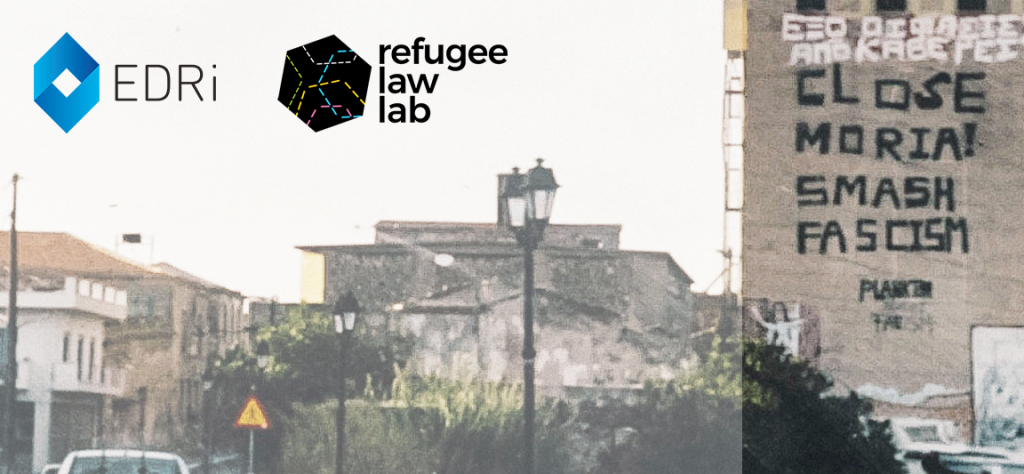Booklet: Technological testing grounds, border tech is experimenting with people’s lives
The European Union is increasingly experimenting with high risk migration management technologies.

Much of this innovation occurs without adequate governance mechanisms and does not account for the very real impacts on people’s rights and lives.
A new report published by Mozilla fellow Petra Molnar for EDRi, “Technological Testing Grounds,” is based on over 40 conversations with refugees and people on the move and shows that much of this innovation occurs without adequate governance mechanisms and does not account for the very real impacts on people’s rights and lives.
“We are Black and border guards hate us. Their computers hate us too.”
– Adissu, a young man from Eritrea living in Brussels without immigration status, interviewed in July 2020
The investigation supplements an upcoming report on xenophobic discrimination and emerging digital technologies for immigration enforcement by the Ms. Tendayi Achiume, United Nations Special Rapporteur on Racism, Racial Discrimination, Xenophobia and Related Intolerance. Both reports find that many countries are exploring technological experiments for the purposes of border enforcement, decision-making, and data mining. From drones patrolling the Mediterranean to Big Data projects predicting people’s movement to automated decision-making in immigration applications, these innovations are justified as necessary to bolster border enforcement. However, these high risk technological experiments exacerbate systemic racism and discrimination and can lead to significant harm within an already discretionary system.
Right now, very little regulation exists on the use of border technologies. Due to this free-for-all and the increasing reliance on the private sector to set the agenda, what has fallen by the wayside are the real harms that people experience at the sharp edges of this technological development. More and more, violent uses of technology push borders farther afield, contributing to policies of border externalisation and militarisation. These policies have direct and dire consequences – drownings in the Mediterranean, pushbacks to Libya, and the brutal detention and separation of children from their families at the US/Mexico border facilitated by companies like Palantir.
The European Union has clear domestic and international obligations to respect people’s human rights that are threatened by the implementation of migration management technologies.
Unfortunately, the perspectives of the communities with lived experiences of migration are been left out of the conversation, turning people on the move who are already marginalised into guinea pigs for this level of unfettered high risk technological experimentation.
Read the Technological Testing Grounds report here.
Attend the launch event of the two reports and the Migration and Technology Monitor on November 10th here.
For comments, contact:
Tendayi Achiume, UN Special Rapporteur on Discrimination
Petra Molnar, EDRi’s Mozilla Fellow
In the media:
- UN warns of impact of smart borders on refugees: ‘Data collection isn’t apolitical’ -The Guardian
- Schengen: Tadel für rassistische Hightech-Überwachung und Deutschland – Heise
- How artificial intelligence is changing asylum seekers’ lives for the worse – The Star
- Fellow Research: AI Systems at Borders Threaten Human Rights – Mozilla
- Border technologies largely fail to respect human rights – Computer Weekly
